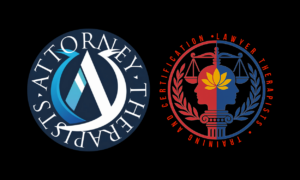The ascension of the Trump Administration to a second term signals a critical inflection point for the integrity of the American legal system. Over the past decade, constitutional norms that once functioned as inviolable guardrails have been systematically weakened, and the reemergence of a Trump presidency threatens to accelerate this trend. This article examines the ramifications of these developments, with particular attention to the psychological burden borne by attorneys whose professional identities are deeply intertwined with the preservation of the rule of law.
The Loosening of Constitutional Guardrails
The United States Constitution has historically functioned as a bulwark against executive overreach, with the judiciary, legislative oversight, and public accountability mechanisms serving as essential constraints on presidential authority. However, during the first Trump Administration (2017-2021), several critical checks were eroded:
Undermining Judicial Independence – Frequent attacks on judges and the judiciary, including allegations of bias against judicial appointees, signaled a departure from the respect traditionally afforded to an independent judiciary.
Executive Overreach – Expansion of executive power beyond constitutional limits was evident in actions such as the invocation of emergency powers to secure funding for policy initiatives that Congress had explicitly rejected, raising profound separation-of-powers concerns.
Erosion of Ethical and Legal Norms – The refusal to comply with congressional subpoenas, the alleged politicization of the Department of Justice, and efforts to shield executive officials from legal accountability further diminished institutional checks.
Delegitimization of the Electoral Process – Persistent claims of electoral fraud, coupled with an unprecedented effort to overturn the results of the 2020 election, severely undermined public confidence in the democratic process.
The Trump Administration’s renewed tenure is likely to amplify these trends, further diluting the constitutional order that attorneys rely on to safeguard justice and fairness.
The Psychological Toll on Legal Professionals
For attorneys, the loosening of these guardrails presents not merely a legal crisis but also a profound psychological one. Legal professionals operate within a framework of predictability and stability, wherein the law is presumed to be an impartial force. The erosion of constitutional norms upends this expectation, leading to several psychological stressors:
Moral Distress and Cognitive Dissonance
Attorneys, particularly those engaged in civil rights litigation, government accountability, and constitutional law, face moral distress when compelled to operate within a system that no longer upholds the principles they were trained to defend. This dissonance between professional duty and systemic dysfunction can lead to burnout and ethical disillusionment.
Increased Anxiety and Emotional Exhaustion
The unpredictability of legal outcomes in a system where executive influence supersedes judicial impartiality contributes to heightened anxiety among practitioners. Lawyers must navigate an environment where legal precedents may be ignored or overturned based on political expediency, creating instability in their professional roles.
Diminished Professional Identity and Role Strain
Attorneys derive a significant portion of their identity from their role as defenders of the legal system. When that system becomes increasingly compromised, legal professionals may struggle to find meaning in their work. Public interest lawyers, prosecutors, and government attorneys, in particular, may experience a crisis of professional purpose.
Secondary Trauma and Helplessness
Legal professionals, particularly those working in immigration, civil rights, and criminal justice, often experience secondary trauma from witnessing systemic injustices. As constitutional guardrails weaken, attorneys may feel an increased sense of helplessness in advocating for vulnerable clients, exacerbating mental health challenges.
Mitigating the Psychological Impact
Given these emerging threats, legal institutions, law firms, and professional organizations must proactively address the psychological well-being of attorneys. Potential strategies include:
Enhancing Professional Support Networks – Bar associations and legal advocacy organizations should provide mental health resources tailored to attorneys grappling with systemic dysfunction.
Ethical Resilience Training – Law schools and continuing legal education programs should incorporate resilience training to help attorneys navigate moral and ethical challenges within a shifting legal landscape.
Advocacy for Institutional Reform – Attorneys must engage in collective action to reinforce legal norms and promote accountability mechanisms that can restore constitutional guardrails.
Conclusion
The weakening of constitutional protections under the renewed Trump Administration represents a profound threat not only to the legal order but also to the psychological well-being of those tasked with defending it. As attorneys confront an era of heightened legal instability, institutional support and individual resilience will be crucial in safeguarding both the integrity of the legal profession and the mental health of those who serve within it.









